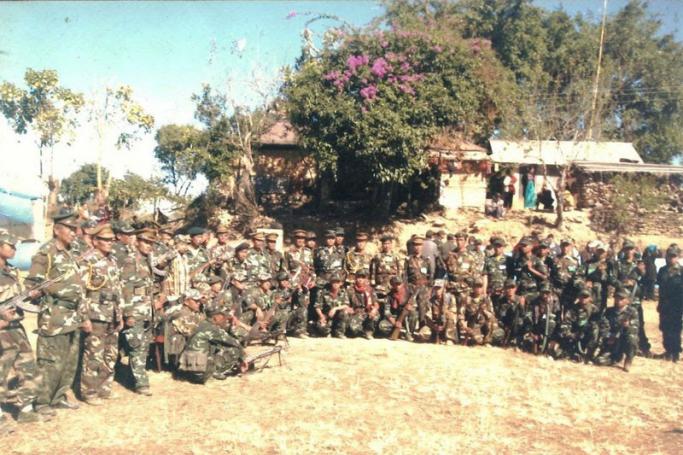The recent leadership change in the Khaplang faction of the National Socialist Council of Nagaland (NSCN) has possibly been driven by a desire by the group's Myanmar Naga leadership to formally join the Myanmar peace process.
The group led by Myanmar Naga rebel leader S S Khaplang who died last year has been barred by the NLD government from signing the Nationwide Ceasefire Agreement (NCA) because they demand an independent Naga homeland comprising the more than two million Nagas in India's northeast and Myanmar 's Sagaing Division.
Khaplang was replaced after his death by Indian Naga rebel leader Khango Konyak who remained steadfast to the secessionist demand.
Although the NSCN-K group signed a ceasefire with the Myanmar government in 2012, it was not allowed to sign the NCA because Myanmar's 2008 constitution does not allow secession by any ethnic group or region.
Khango Konyak was ousted this month as chairperson of this Naga rebel group on a host of charges including autocratic functioning and incompetent leadership.
But sources close to the group say that the Myanmar Nagas leading this organisation wanted to get rid of Khango and other Indian Nagas as a prelude to giving up on the demand for an independent Naga homeland straddling India and Myanmar.
Khango was replaced by Khaplang' s nephew Yung Aung as 'Acting chairman'.
Some Myanmar Nagas in the group are reported to be already in jade and other clandestine businesses with former rebels and ex-Tatmadaw commanders and to be part of the NCA serves them well, sources close to the group says.
The Khaplang group abrogated its ceasefire with India in 2015 and started a series of attacks against Indian forces.
India mounted pressure on Myanmar to control the hostile activities of this group. Tatmadaw commanders promised to ensure that and last month attacked Khaplang group bases in Taga, burning down some camps.
That seems to have been the turning point. Overground tribal leaders in the Naga self-administered zone in Sagaing have long pushed Myanmar Naga rebel leaders to stop attacks against Indian forces since New Delhi showed interest in funding infrastructure development in the remote area.
Some of these leaders including a Naga MP visited northeast India with the chief minister of Sagaing in the last 3 years.
The visit was organised by the Indian embassy in Yangon.
The NSCN 's Muivah group seems to have monopolized the peace process with India since 1997 and despite the long ceasefire for fifteen years, the Khaplang group was not included in the negotiations.
That led to the unilateral abrogation of the ceasefire by Khaplang in 2015.
Myanmar Naga rebel leaders close to him have good reasons to feel a lack of a stake in the struggle in India and would be less bothered with the impossible vision of a united homeland than the future of their self-administered zone in Myanmar.
So, a section of the group's leadership seems to be pushing for signing the NCA and the removal of Khango Konyak seems to be a prelude to that.
Khango has given indications he may join one of the India based NSCN factions, either the Muivah group or the Khole -Khitovi faction.
It is however not yet clear whether the new leadership of the Khaplang group will allow other northeast Indian rebel groups to retain camps in their base area in Taga.












